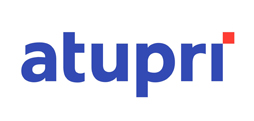The proverbial “Röstigraben” is not only a cultural and political division. Linguistic borders also impact health insurance premiums, as a study by moneyland.ch shows. Cultural differences on both sides of the divide have far-reaching effects on the attitudes of Swiss towards health insurance costs, and ultimately on their wallets.
Notable disparities in health insurance premiums between linguistic regions
For its analysis, moneyland.ch examined more than 250,000 items of data relating to health insurance premiums, comparing premiums across age groups, insurance models, deductibles, insurance providers and premium regions. The results are based on the primary official language of each individual insurance district.
Result: In 2017, adult health insurance policyholders in French-speaking Switzerland will pay much higher premiums than those in other linguistic regions. The difference comes to 407.20 francs per person per month. Residents of Italian-speaking Switzerland pay an average of 385.20 francs per month, or 260 francs less than those in French-speaking Switzerland. Policyholders in German-speaking Switzerland will pay an average of just 351.10 francs per month – making their annual health insurance bill a shocking 670 francs lower than what the average resident of French-speaking Switzerland will pay.
The Röstigraben trend spans all age groups
The same trend emerges when looking at health insurance premiums charged to young adults (19 to 25 years old) and to children (up to 18 years old). Young adults in French-speaking Switzerland pay a weighted average of 373.20 francs in monthly premiums. In Ticino the average monthly premium is 345.30 francs and in German-speaking Switzerland, premiums for young adults average 315.40 francs. Children can expect to pay an average premium of 107.50 francs in French-speaking Switzerland, 100.60 francs in Italian-speaking Switzerland and 94.50 francs in German-speaking Switzerland.
Premium hikes lowest on the German-speaking side
Residents of French-speaking areas have paid higher health insurance premiums than other residents for several years now. According to Felix Oeschger, an analyst at moneyland.ch, “the proportional increases between the 2016 and 2017 premium years indicate that this trend is likely to continue”.
Health insurance premiums for adults in German-speaking Switzerland will be 4.8% higher, on average, in 2017. Meanwhile, French-speaking Switzerland will pay 5.9% more, while average premiums in Ticino are climbing by 6.6%.
Young adults and children are hardest hit in the French-speaking part of the country, where premiums for young adults will be 6.7% higher in 2017, while premiums charged to children will be 8.3% higher than the 2016 average. Those increases make the 5% (young adult) and 5.8% (children) hikes which residents of German-speaking Switzerland are bracing themselves for seem mild by comparison.
Health insurance load hits French-speaking Swiss exceptionally hard
“French-speaking Swiss have long borne the brunt of the health insurance premium load, and in 2017 that load is becoming heavier than ever” says moneyland.ch CEO Benjamin Manz. But there is a reason why premiums in western Switzerland are higher. Benefit pay-outs by health insurance providers to policyholders on the French-speaking side are also notably higher, with Geneva claiming the largest share. “Taking that information into account, it is not surprising that, in contrast to residents of German-speaking Switzerland, French-speaking Switzerland continues to favor the idea of a unified health insurance solution” says moneyland.ch analyst Felix Oeschger.
Adults residing in the Canton of Geneva will be especially affected in 2017, with premiums averaging 460.60 francs per person. But residents of other western cantons like Neuchâtel (403.60 francs) and Jura (404.10 francs) pay premiums that are well above the national average (refer to the attached premium chart showing differences across linguistic, cantonal and premium regions).
The premium analysis show particularly interesting results in the Canton of Valais. While average premiums for adult policyholders in premium regions with primarily German-speaking population are below average, at 299.60 francs, policyholders in predominantly French-speaking premium regions will pay an average premium of 325.50 francs per month – 310 francs more per annum than their neighbors.
The most expensive premiums in Switzerland
It is not just the average premiums that are higher on the French-speaking side. The highest premium charged for compulsory health insurance can also be found in the west – Geneva to be precise. The Kolping standard-model insurance policy with a 300-franc deductible costs Geneva residents a whopping 827 francs per month. The most expensive policy for compulsory health insurance in German-speaking Switzerland can be gotten in Basel Stadt for 815 francs per month, while an 822-franc policy is available in Ticino. By comparison, the lowest premium charged for an adult policy is just 148.85 francs per month for a Sanavals family doctor policy in the Canton of Grisons.
If you are interested in receiving a chart showing the average premiums of each premium region, please contact us at [email protected].
More on this topic:
Health insurance comparison
Tips for saving on your insurance premiums
Swiss health insurance: How does It compare internationally?
Health insurance: Benefit payment models compared

 Deal of the Day
Deal of the Day 






